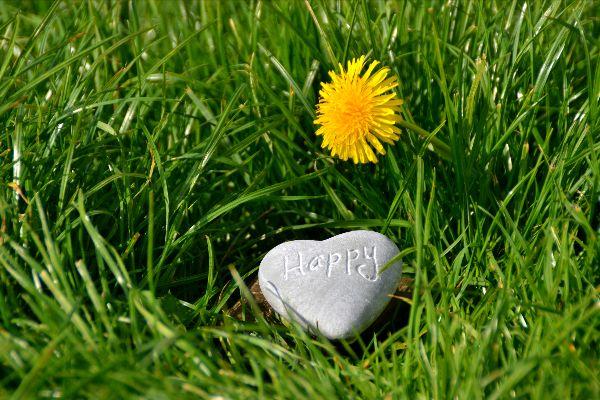Photo Credit: Szilvia Basso | Unsplash
Contributed by Josh H.
Consider this scenario. We have a dream, a goal to accomplish. We are pretty sure that this achievement – owning a business, winning a race, getting married, having children, winning the lotto, losing weight – is the one thing that will bring us happiness forever. When we reach our goal, we are filled with joy. Then, as the months pass, the joy and happiness begins to fade away. How is it possible that the happiness we felt when we achieved the very thing we thought would make us happy fades away, even leaving us feeling empty? One possibility is this, when we attach our happiness to some momentous event or end-result, when we achieve it, the “high” that comes from the newness of the experience dissipates as we get used to our new life—it becomes our new normal.
So how can happiness be a more enduring experience?
Be actively engaged in life.
We can learn a lot from the experience of being in love. When we first start a relationship, we are excited and fall madly in love. After a while, we might become complacent, start complaining that the romance is gone, become bored, break up and look to find another relationship that will “make us happy.” When we are in this kind of cycle, we believe the relationship is the source of the happiness but, if we look deeper and examine how we were during the early days of the relationship, it is likely that we will notice that how our attitude at the outset was different. Chances are we were more involved, more curious about each other, more excited about getting know each other, we participated more in the activities we got involved in and we continually brought a spirit of newness to the relationship. Consider bringing this spirit of engagement to life on a daily basis and things will take on a sense of wonder and discovery which in turn arouse feelings of happiness within you in the moment. Try something new “just because,” learn something new, walk a different path, and focus your attention on the process than the outcome.
Cultivate an attitude of gratitude.
Being grateful has been scientifically proven to foster happiness. Years ago I began a gratitude practice inspired by a segment I watched on Oprah Winfrey’s show over a decade ago. It looked like this. Each day I noted in my journal at least five things I was grateful for. It began with simple things like having a delicious cup of coffee and over the years I have expanded it to include experiences whether they are positive or negative. I have found that being grateful for something I acquired decades ago gives me a new appreciation of it and evokes feelings of happiness. More interestingly, I have experimented with sad events such as losing a loved one and discovered that when I brought an attitude of gratitude to who they were for me, what they taught me, things we did together, there were feelings of sadness for the loss as well as happiness for the relationship. Consider creating your own gratitude practice and bring this attitude to the details of your life. For example, savor the way you decorated a room, enjoy the beauty of your kitchen while you cook, give a meaningful hug to a friend, compliment a friend for who they are for you, find something to appreciate in even the most mundane of tasks, acknowledge yourself for the process of accomplishment.
Consider This: Enduring joy comes from dancing with what is—not waiting for what might be or banking on what you accomplish.



Views and Reviews